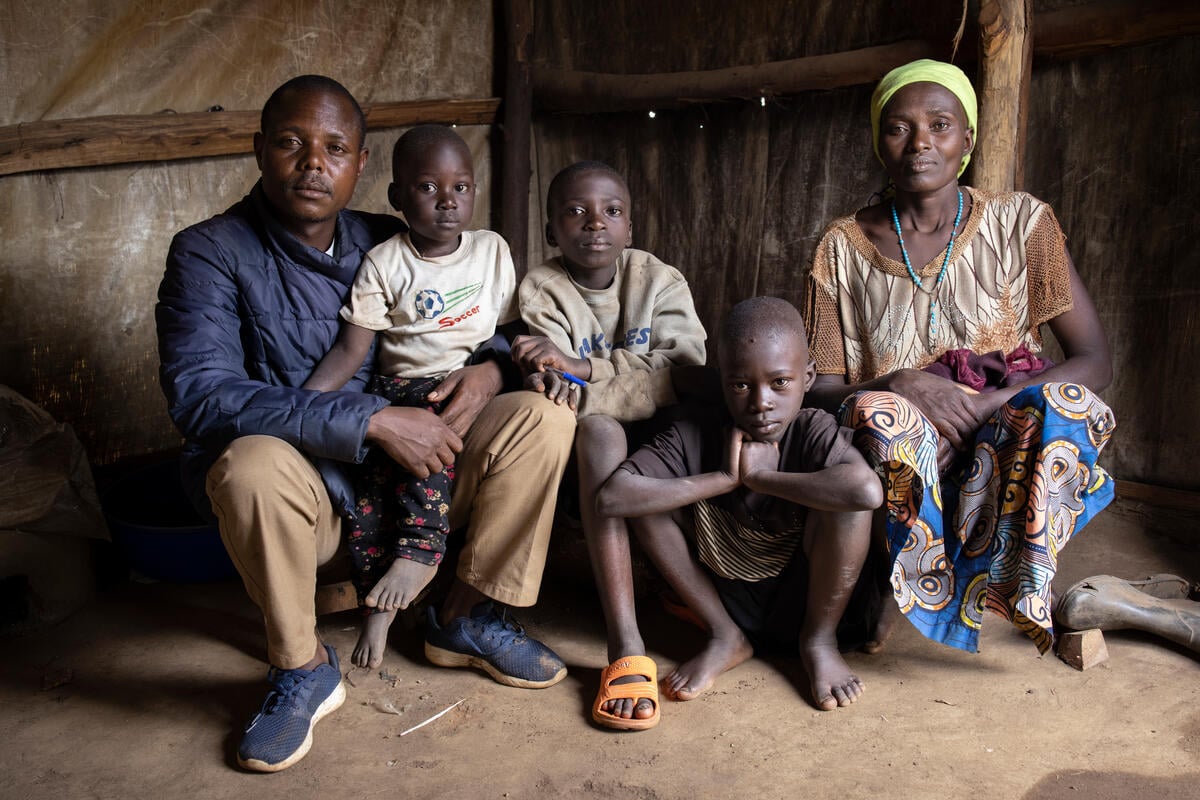UNHCR highlights key concerns for refugee health amid record displacement
UNHCR highlights key concerns for refugee health amid record displacement

GENEVA - UNHCR, the UN Refugee Agency, is concerned about the nutrition of refugees and its potential impact on health outcomes amid a confluence of global crises, including food shortages and limited access to job opportunities.
A third of the 93 sites surveyed in UNHCR’s 2021 Annual Public Health Global Review, out today, showed serious levels of global acute malnutrition and critical levels were recorded at 14 per cent of locations.
“The rates of malnutrition are troubling, particularly as they were recorded before the war in Ukraine sent food and commodity prices rising,” said Sajjad Malik, Director for the Division of Resilience and Solutions at UNHCR. “Nutritional intake is a cornerstone to building healthier, resilient communities.”
In a difficult year, marked by COVID-19 and record levels of global displacement, 7.6 million refugees received healthcare supported by governments, UNHCR and other partners.
The leading causes of illness remained upper respiratory tract infection (23 per cent), malaria (19 per cent) and lower respiratory tract infection (7 per cent). Non-communicable diseases accounted for 5 per cent of consultations while mental health services made up 2 per cent, a slight increase on 2020.
Gains were made in the inclusion of refugees into national health policies. In the 48 countries surveyed on inclusion, 76 per cent included refugees in the national health plan, an increase from 62 per cent in 2019. All countries reported that refugees could access primary health facilities, with 94 per cent under the same conditions as nationals.
By the end of 2021, the second year to be marked by COVID-19, 162 countries had included refugees and asylum-seekers in national vaccination plans. By the end of the year, 4.79 million vaccine doses had been administered to 3.25 million refugees.
UNHCR also procured and delivered personal protective equipment and other critical items such as rapid diagnostic tests and oxygen concentrators worth $69.1 million to 75 operations.
More broadly, UNHCR remains concerned by the disruption to services caused by the pandemic and is focusing on the uptake of routine childhood immunizations in 2022.
Despite the interruptions to health services caused by the pandemic, access to skilled birth attendants for refugees remained static at 93 per cent. Skilled birth attendants assisted in 114,490 of the 123,264 deliveries recorded in 2021.
UNHCR is committed to equitable access to health care and urges states to include refugees into functional national health systems and services wherever possible.
The full report, 2021 Annual Public Health Global Review, can be accessed here.
For more information on this topic, please contact:
- In Geneva, Shabia Mantoo, mantoo@unhcr.org, + 41 79337 7650









